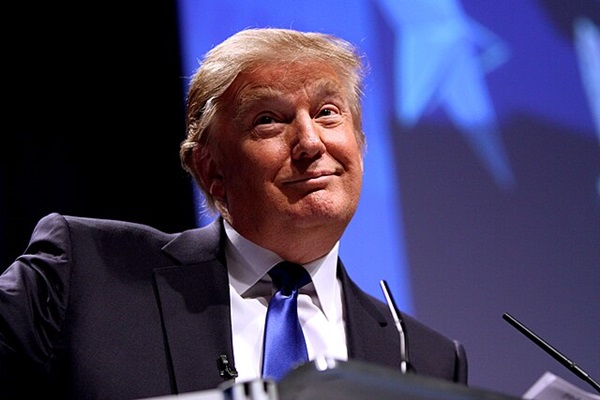.png)
Govt Should Not Take Opposition’s Bait on Trump Tariffs, or Vocabulary
Trump’s tariffs and his choice of words may trigger loud politics, but the Indian government would be wiser to stay calm. Escalating tensions with Washington would not help at a time of fragile geopolitics.

Saibal Dasgupta is an author, veteran journalist, and noted China expert who has reported from Beijing since 2005 and contributes to global media and think-tanks.
August 1, 2025 at 2:35 PM IST
A lot of Indian politicians and analysts are upset about US President Donald Trump’s remark that India is a “dead economy” and deserves a high 25% tariff. They are waiting to see whether the government will stand up to the US or compromise as some countries have done.
Actually, there is a third option, which is to see the tariff challenge as an opportunity to cure the malaise of over-protectionism in a large section of producers in both the industrial and agricultural sectors. Protecting local businesses from international competition has stymied innovation and efficiency in the production process.
Some politicians like Rahul Gandhi want India to challenge the US and even call Trump a liar for wrongly claiming that he mediated in the India-Pakistan conflict. One hopes that the government does not succumb to such pressures. There are times when diplomacy matters more than the need to preserve a macho image, particularly when the stakes are very high.
Trump has shown repeatedly that his ambitions and biases matter as much as his propensity for making business deals. Look at the 50% tariff he has imposed on Brazil, though it has not forced the US into a trade deficit. Brazil’s fault is that it is prosecuting Trump’s friend and former President Jair Bolsonaro on charges of trying to conduct a political coup.
It is evident that most Indian analysts have given little importance to his ambition to win the Nobel Prize for Peace. Pakistan has skilfully used this aspect by officially nominating him before the Nobel Peace Committee. This is behind 27 repetitions of his claim about mediating and ending the India-Pakistan conflict.
“It is well past time that he should be awarded the Nobel Peace Prize,” White House Press Secretary Karoline Leavitt recently said. “President Trump has now ended conflicts between Thailand and Cambodia, Israel and Iran, Rwanda and the Democratic Republic of Congo, India and Pakistan, Serbia and Kosovo, and Egypt and Ethiopia,” she said.
India has refused to acknowledge this claim both because it is wrong and it will support the Pakistani narrative. Historically, India has rejected outside mediation because such intervention affects the morale of the armed forces who fight to win.
Trump would have liked both India and Pakistan to acknowledge his claim about mediation because that would strengthen his claim over the prize. His obsession with the prize was evident during the Israel-Iran conflict. “They will never give me a Nobel Peace Prize,” he said. “It’s too bad. I deserve it, but they will never give it to me.”
During the 2024 election campaign, Trump said, “If I were named Obama, I would have had the Nobel Prize given to me in 10 seconds”. White House trade adviser Peter Navarro said Trump deserves a Nobel Prize in economics for his commitment to “restructuring” global trade rates.
India may not acknowledge his role as a mediator in the conflict with Pakistan but it makes little sense to directly challenge those claims. Sealed lips are sometimes more effective than a glib tongue, particularly when the stakes are extremely high. Reduction of exports is just one part of a bigger problem.
This includes the fate of an approximately 5.2 million people of Indian origin who live in the US, and the fact that it is still the major provider of high technology. For instance, ISRO is planning new projects after the recent success of launching a satellite in collaboration with NASA.
An angry Trump can hurt in a variety of ways. More than anything else, it would not help if we alienate both superpowers, China and the US. Distrust levels are very high, though there are signs of India and China trying to reduce tensions. China is unlikely to give up its claims on Indian territory, making it difficult to rely on Beijing beyond a certain point.
Trump has the image of a mercurial leader who wants to roast and eat some politician somewhere with every breakfast. But there is nothing unpredictable about his dealings with India. He has conveyed his unhappiness towards India more than 40 times in the past few months.
He has complained about India being the world’s biggest abuser of tariffs, about being a part of the BRICS group trying to challenge the dollar’s supremacy, about buying Russian oil, about ignoring his role as a mediator in the India-Pakistan conflict, and finally being a “dead economy” where the US has very little dealings.
Whether you like it or not, Trump will call the shots, making powerful leaders in the European Union and elsewhere accept his diktat. There is little chance of countries affected by Trump’s tariffs— Canada, Brazil, Russia, India, China and European Union nations—putting up a joint resistance because each of them is separately negotiating with Washington.



